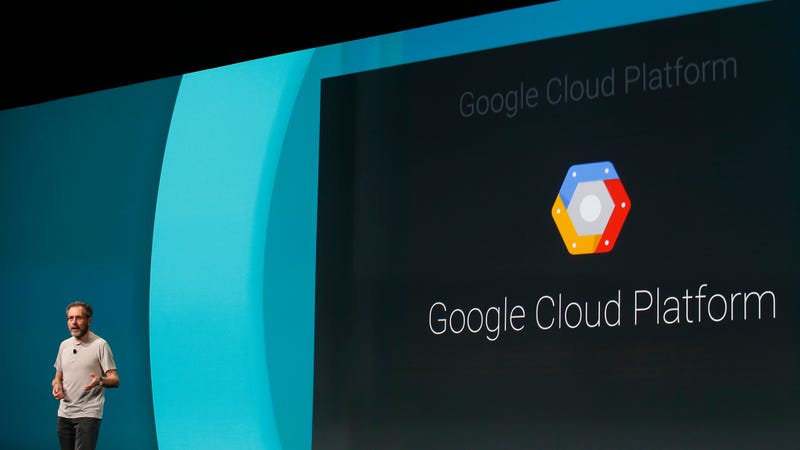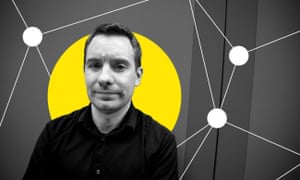An Technology blog focusing on portable devices. I have a news Blog @ News . I have a Culture, Politic and Religion Blog @ Opinionand my domain is @ Armwood.Com. I have a Jazz Blog @ Jazz. I have a Human Rights Blog @ Law.
Saturday, March 24, 2018
Friday, March 23, 2018
Uber's fatal driverless car crash could've been avoided, say autonomous vehicle experts - CNET

"...Cortica, a technology company that develops autonomous artificial intelligence, analyzed the video and provided its evaluation exclusively to CNET. Its system detected Herzberg at 0.9 second before impact when the car was about 50 feet away. Cortica's CEO, Igal Raichelgauz, said that would have been enough time for an autonomous vehicle to react and save Herzberg's life.
"The advantage of machine response time and control, the right actions could be made to certainly mitigate the damage," Raichelgauz said.
Tempe police say the car didn't slow down or swerve as Herzberg appeared on the road. It hit her traveling at 38 mph.
"The video is disturbing and heartbreaking to watch, and our thoughts continue to be with Elaine's loved ones," an Uber spokeswoman said in an emailed statement. "Our cars remain grounded, and we're assisting local, state and federal authorities in any way we can."
A work in progress
Driverless cars are equipped with a system of cameras, radar and lidar sensors that allow them to "see" their surroundings and detect traffic, pedestrians, bicyclists and other obstacles. If confronted with a pedestrian, self-driving cars are supposed to stop. These sensors are said to work as well at night as in daylight.
"Although this video isn't the full picture, it strongly suggests a failure by Uber's automated driving system," said Bryant Walker Smith, a University of South Carolina law professor who studies autonomous vehicles. "The victim is obscured by darkness -- but she is moving on an open road. Lidar and radar absolutely should have detected her and classified her as something other than a stationary object."
For the most part, testing of autonomous technology has shown driverless cars to be safe. But it's still a work in progress. The vast majority of vehicle tests haven't been done on public roads, and the cars are still learning how to drive.
"Driving a car can seem like a rote process, but it is not," said Timothy Carone, a driverless car expert and associate teaching professor at the University of Notre Dame's Mendoza College of Business. "We make complex decisions and value judgments continually when we are behind the wheel."
As autonomous systems mature and become more capable of handling unusual situations, they'll get better at making those complex decisions, Carone said. But, he added, that could take years.
"As our society transitions to using more systems like driverless cars, pilotless airplanes, driverless trucks and trains, and weapons, the accidents will continue happening," Carone said."
Uber's fatal driverless car crash could've been avoided, say autonomous vehicle experts - CNET
Thursday, March 22, 2018
How to Prevent Smart People From Spreading Dumb Ideas - The New York Times

"1. No link? Not news! Every time somebody tweets “BREAKING” a little bell should go off in your head. Before you even read the rest of the news, look for the link. Average Americans almost never break news about big stories. Even most professional journalists lack the sources and experience to quickly verify sensational information. If news breaks on a truly important story, there should be a link to a credible news source. But I still regularly see tweets that have no connection to reality being retweeted thousands of times by people who should know better. Here’s but one example of completely fictional “news” that was retweeted over 46,000 times. It involved Haiti’s supposed reaction to President Trump’s recent insult.
2. I knew it! If breaking news on social media aligns perfectly with your carefully structured view of the world, then pause before liking it or retweeting it. Why? Because you — like most of us — have curated a personal news feed to confirm things you already suspected or “knew.” If you didn’t do this yourself (by unfriending people who dared argue politics with you on your feed), Facebook and Twitter are doing it for you. They structure your timeline to make it as agreeable as possible. Cambridge Analytica’s success was premised on building a distribution system tailored to precisely exploit the biases and preconceptions of specified Facebook users.
But Cambridge Analytica is the symptom, not the disease. The larger problem is that unpleasant and frustrating information — no matter how accurate — is actively hidden from you to maximize your social media engagement. George Orwell once noted that he became a writer because he possessed “a facility with words and a power of facing unpleasant facts.” There’s no place for “unpleasant facts” in our social media universe. Were Orwell alive today, he’d remind us of the terrible political costs caused by this devolution in our informational habits.
3. Why am I talking? My wife is a psychotherapist, and occasionally I skim her Psychotherapy Networker magazine. I read a piece by a therapist who realized his most effective communicative moments often occurred when he asked himself a simple question: “Why am I talking?” Inevitably this question shut him up and allowed him to absorb much more information. “Why am I talking” works out to a great acronym: WAIT. If we all just asked ourselves this simple question immediately before posting or retweeting, we’d all be better off. There are numerous reasons to participate in the public sphere, and everyone can contribute something valuable. But there’s also far too much noise out there, and we need to think more seriously and realistically about the added value of our own communication.
These are three simple rules. Of course, they contradict every mechanism Facebook and Twitter uses to encourage our behavior on social media. Being more skeptical, engaging more selectively and prioritizing links to information providers outside our social media silos will hurt the bottom line of the social media giants. Using social media in a more responsible manner might ultimately leave these companies to rot away as they cede their civic responsibilities to the Russian trolls and bots dedicated to polluting our discourse. If they won’t act, it’s up to us. If we’re collectively smarter and more skeptical about social media as an information delivery device, it will ultimately lessen the influence that these corporations and trolls have on our civic governance."
(Via.).How to Prevent Smart People From Spreading Dumb Ideas - The New York Times:
Mark Zuckerberg answers Cambridge Analytica privacy questions - CNET
"Zuck spoke and the world listened.
But he may not have said enough to appease critics of the world's largest social network.
After five days of silence and with the hashtags #WheresZuck and #DeleteFacebook trending on Twitter, Facebook CEO Mark Zuckerberg on Wednesday addressed a major controversy over how London-based consultancy Cambridge Analytica misused data from 50 million Facebook users. In a 936-word post on his Facebook page, Zuckerberg acknowledged that Facebook had made "mistakes" that led to a "breach of trust between Facebook and the people who share their data with us and expect us to protect it."
In interviews with a few media outlets, including CNN, the New York Times and Wired later in the day, Zuckerberg talked about things it seemed Facebook would never talk about. Asked about government regulation, Zuckerberg said he'd be open to it, particularly regulation related to ad transparency. "I'm not sure we shouldn't be regulated," he said. He also said he'd consider testifying before Congress -- if he was the person at Facebook with the most information about the topic in question. Prominent senators, including Democrats Amy Klobuchar and Mark Warner, have called for him to testify..."
Mark Zuckerberg answers Cambridge Analytica privacy questions - CNET
Wednesday, March 21, 2018
Google Opens Up About How Its Cloud Stores Your Secrets

"...For instance, Google is expanding Access Transparency by offering customers a real-time log of any accesses to their data by Google’s own engineers and support staff, as well as justifications for that access. In doing so, Google is giving enterprise customers a way to make sure that its employees aren’t poking around when they shouldn’t be.
“We want to be as open and transparent as possible, allowing customers to see what happens to their data,” said Jennifer Lin, Cloud’s product management director for security and privacy.
Google is also giving consumers more visibility of security threats, with the same tools it uses to protect its own products. Its Cloud Security Command Center will highlight botnets, cryptocurrency mining, and other threats using the Google Security team’s own tools as well as vendor data from security companies like Cloudflare, CrowdStrike, Dome9, RedLock, Palo Alto Networks, and Qualys..."
Google Opens Up About How Its Cloud Stores Your Secrets
Tuesday, March 20, 2018
'Utterly horrifying': ex-Facebook insider says covert data harvesting was routine | News | The Guardian

"Hundreds of millions of Facebook users are likely to have had their private information harvested by companies that exploited the same terms as the firm that collected data and passed it on to Cambridge Analytica, according to a new whistleblower.
Sandy Parakilas, the platform operations manager at Facebook responsible for policing data breaches by third-party software developers between 2011 and 2012, told the Guardian he warned senior executives at the company that its lax approach to data protection risked a major breach.
“My concerns were that all of the data that left Facebook servers to developers could not be monitored by Facebook, so we had no idea what developers were doing with the data,” he said.
Parakilas said Facebook had terms of service and settings that “people didn’t read or understand” and the company did not use its enforcement mechanisms, including audits of external developers, to ensure data was not being misused.
Parakilas, whose job it was to investigate data breaches by developers similar to the one later suspected of Global Science Research, which harvested tens of millions of Facebook profiles and provided the data to Cambridge Analytica, said the slew of recent disclosures had left him disappointed with his superiors for not heeding his warnings.
“It has been painful watching,” he said. “Because I know that they could have prevented it.”
'Utterly horrifying': ex-Facebook insider says covert data harvesting was routine | News | The Guardian
Monday, March 19, 2018
Sunday, March 18, 2018
Chromebook Vs. Best Windows 10 Laptop: Google Pixelbook Takes On Dell XPS 13
"But what about Chrome OS vs Windows 10 and macOS?
Chrome OS now runs all of the apps that I use on my Windows laptops and MacBook. So, that’s just not an issue anymore for me. True, it won’t run some popular applications. But that list is getting shorter and shorter.
For me, the mobile app upside is bigger: it runs Android apps (basically all the apps I use on my Pixel 2 phone). The world has gone mobile (in case you haven’t noticed) and a laptop that runs smartphone apps is the future.
Also, the Chromebook platform is secure (goodbye malware), stable, easy to use, and self-maintains. The latter point makes a big difference. You’re not constantly hassled by updates and reboots. Pretty much everything is taken care of in the background.
The upshot: Chrome OS — which is cloud-based — is more like mobile operating systems such as Android and iOS — a refreshingly clean break from the older DOS/Windows/Mac platforms.
Which works for you?
I think it’s safe to say Chrome OS is where desktop (aka laptop) operating systems are headed. Microsoft, in fact, has designed Windows 10 S (or the S Mode) for that very reason — to compete with Chrome OS.
Chromebook Vs. Best Windows 10 Laptop: Google Pixelbook Takes On Dell XPS 13: ""
